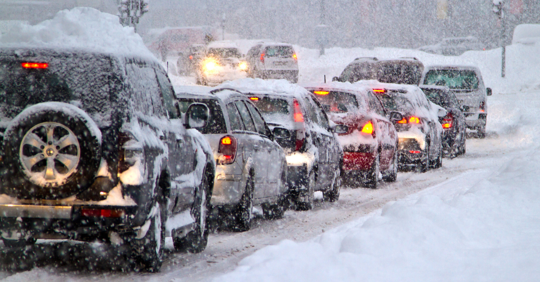|
|
Last Modified on Sep 30, 2024
Seasonal Trends in Car Accidents
Winter Months: Increased Accident Rates
Winter months are notorious for their treacherous driving conditions, which significantly contribute to increased accident rates. Icy roads and reduced visibility due to snow and fog are primary culprits. When temperatures drop, moisture on the road can freeze, creating black ice that is nearly invisible to drivers. This can lead to a loss of traction and control, resulting in more frequent and severe accidents.
Additionally, shorter daylight hours mean that many people are driving in the dark, further reducing visibility and increasing the likelihood of collisions. According to the National Highway Traffic Safety Administration (NHTSA), winter months see a marked increase in car accidents, with December and January being particularly dangerous.
To navigate these hazardous conditions safely, it’s crucial to take several precautions. First and foremost, ensure your vehicle is winter-ready by checking tire tread and pressure, as well as using winter tires if necessary. Always keep your windshield and windows clear of ice and snow to maintain maximum visibility. When driving, reduce your speed and increase your following distance to give yourself more time to react to sudden changes in road conditions. Additionally, avoid using cruise control on slippery roads, as it can make it harder to regain control if your vehicle starts to skid.
Summer Months: A Surge in Traffic Incidents
While winter may be the most perilous season for driving, summer months also see a surge in traffic incidents, albeit for different reasons. The warmer weather encourages more people to travel, often leading to congested roads and highways. Families embark on vacations, teenagers are out of school and driving more frequently, and an increase in road construction projects can all contribute to a higher likelihood of accidents.
According to the Insurance Institute for Highway Safety (IIHS), July and August are among the months with the highest number of car accidents. The combination of increased traffic volume and the potential for distracted driving, such as using a phone or dealing with restless children, makes summer a risky time to be on the road.
Specific Holidays and Their Impact On Car Accident Rates
Holiday Season: Thanksgiving, Christmas, and New Year’s
The holiday season, encompassing Thanksgiving, Christmas, and New Year’s, is a time of joy and celebration, but it also brings a significant increase in car accidents. The combination of heavy traffic, long-distance travel, and festivities involving alcohol consumption creates a perfect storm for road mishaps.
According to the NHTSA, the period between Thanksgiving and New Year’s Day sees a notable spike in traffic fatalities. Many people travel to visit family and friends, often driving long hours on unfamiliar roads, which can lead to fatigue and decreased reaction times. Additionally, holiday parties and gatherings frequently involve alcohol, increasing the risk of impaired driving.
To ensure a safe holiday season, it’s important to plan ahead. If you know you’ll be consuming alcohol, arrange for a designated driver or use a rideshare service to get home safely. Avoid driving during peak travel times, such as the day before Thanksgiving or the weekend after Christmas, when roads are most congested. Make sure your vehicle is well-maintained and equipped for winter driving if you’re traveling in colder regions. Finally, stay alert and patient, as other drivers may be stressed or distracted. By taking these precautions, you can reduce your risk of being involved in a holiday-related car accident and enjoy a safer, more enjoyable season.
Contact Our Skilled Attorneys at Fulmer Sill
If you or a loved one has been involved in a car accident in Oklahoma City, the experienced personal injury attorneys at Fulmer Sill are here to help. Our team is dedicated to providing compassionate and effective legal representation to ensure you receive the compensation you deserve. (405) 510-0077





